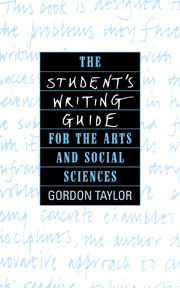Summary
[In the Epilogue] you must make the audience well-disposed towards yourself …
aristotleRecapitulation
If we present our conclusions at the beginning of the essay, how do we ‘conclude’ it?
There is an element of truth in the old preacher's advice to a young cleric beginning on a career of writing sermons: ‘First you tell them what you're going to tell them, then you tell them, and last you tell them what you told them.’ RECAPITULATING your arguments and emphasising the most important aspects of them is just one function of an ending and will not be recommended in all disciplines or in all departments. Such recapitulation should aim, as Aristotle advises, to refresh your readers' memories and make your points ‘easily understood’. By choosing the words in which you express your recapitulation with care, you can simultaneously indicate which of the issues you have raised or arguments you have used are the most important. In any recapitulation there will inevitably be a degree of repetition, even of some of the very words and phrases used in the opening or middle. But the ending should nevertheless avoid being simply a rewriting — a mere repetition — of the opening.
- Type
- Chapter
- Information
- The Student's Writing Guide for the Arts and Social Sciences , pp. 130 - 140Publisher: Cambridge University PressPrint publication year: 1989



